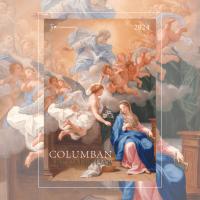I have a strong sense of wanting to share some stories of the people of God in this amazing but challenging country of Pakistan. I cannot tell you of all of them exhaustively; what I can offer here are initial, rather general observations that help me come to a deeper understanding of mission.
Five things that have struck me: livelihood, caste system, religion, poverty and gender.
 Photo: Fr Pat Raleigh SSC
Photo: Fr Pat Raleigh SSC
Livelihood
Agriculture plays a very important role in Pakistan’s economy. Travelling from Islamabad to Karachi on the train gave me a view of rich cultivated lands with various crops. However, not all parts of Pakistan are like this; in fact, massive areas of land are barren.
In Badin parish where I am working and where rain comes according to the season, planting and harvesting seasons are times of rejoicing for people in the villages. After the harvest is the best time for weddings in the tribal villages: celebrations of life in a growing family. However, there is always anxiety as the water supply decreases for two reasons - climate change and other socio-political issues.
Women comprise the majority of the agriculture labour force of the country. They plant and harvest cotton, rice, wheat, tomatoes, mustard greens, potatoes, sunflower seeds, onions, etc. Although the country faces a problem with the water supply, there are herds of cows, buffaloes, and flocks of goats, camels and sheep. Donkeys do much of the work. A shepherd tending sheep at twilight time is always a mesmerizing scene. A cup of Pakistani tea in summer, winter, spring and autumn on village visitations is always refreshing.
The caste system
While I have read books about the caste system in Pakistan, experiencing it is something else. It involves distinctions among people according to their caste or birth or religion and so on and effects all their relationships and opportunities in life. Fortunately, there are signs of its relaxation in some regions and in the case of greater education. But even in small clothing or tea shops, in households and in politics the reality of authority and servant-hood is still very evident in Pakistani society. This centuries-old system can still perpetuate oppressive structures and practises.
Religion
The dream for Pakistan of its founder, Mohammad Ali Jinnah, for Pakistan and religious tolerance always impresses me. History tells us of the tumultuous events of the creation of Pakistan and India in 1947 and the trajectory of this nation after his death. A nation full of aspiration and dreams and a nation gifted with the diversity of people, culture and religions. Living in harmony with people of other creeds and cultures is crucial.
Cooperation and tolerance are evasive. The majority Muslim (97%) population and minority Christian, Hindu, Sikh, Ahmadi, and other populations all have a vital role in building a dynamic and strong Pakistan. Dialogue, of course, is seen as the way that can bring change. But I must admit it is not easy.
Poverty
There is nothing beautiful about being poor and locked in a scandalous system that is dehumanising. Poor people come freely to the Catholic Clinic in Badin to avail of free medical consultations and free treatment for tuberculosis every Friday. All are welcome. In all the villages further out from Badin the health problems are many. There is general malnutrition and often almost no access to clean water.
The inability of the Government to supply human development programs, especially for the poorest of the poor, remains a huge hindrance to progress. What I can do to help is so limited and while I admire and am amazed by the resilience and generosity of the poor people themselves, it is hard to be hopeful about their prospects. The roots that perpetuate poverty run so deep.
Gender
The society is clearly very patriarchal and the visibility of men in public life is so evident and in contrast to that of women who are often confined to their homes or the farm fields. Authority for the most part resides with the men whether it is in the household or the National Assembly.
In families too boys are generally favoured over girls. The concept of “izat” or honour has much importance in the life of the people and women and others whose sexuality is questioned are very often the casualties of this understanding of honour.
Of course I am still very much in the initial stages of my missionary life and journey. I am thankful for the privilege of getting to know another culture and I pray that this journey will continue to enrich and enlighten me and open up many avenues for mission and relationship.
Jerry Lohera is a Columban seminarian from the Philippines and has been in Pakistan since July 2017 for his First Mission Assignment.
Listen to "Five things that struck me in Pakistan"
Related links
- Read more from The Far East, July 2019

